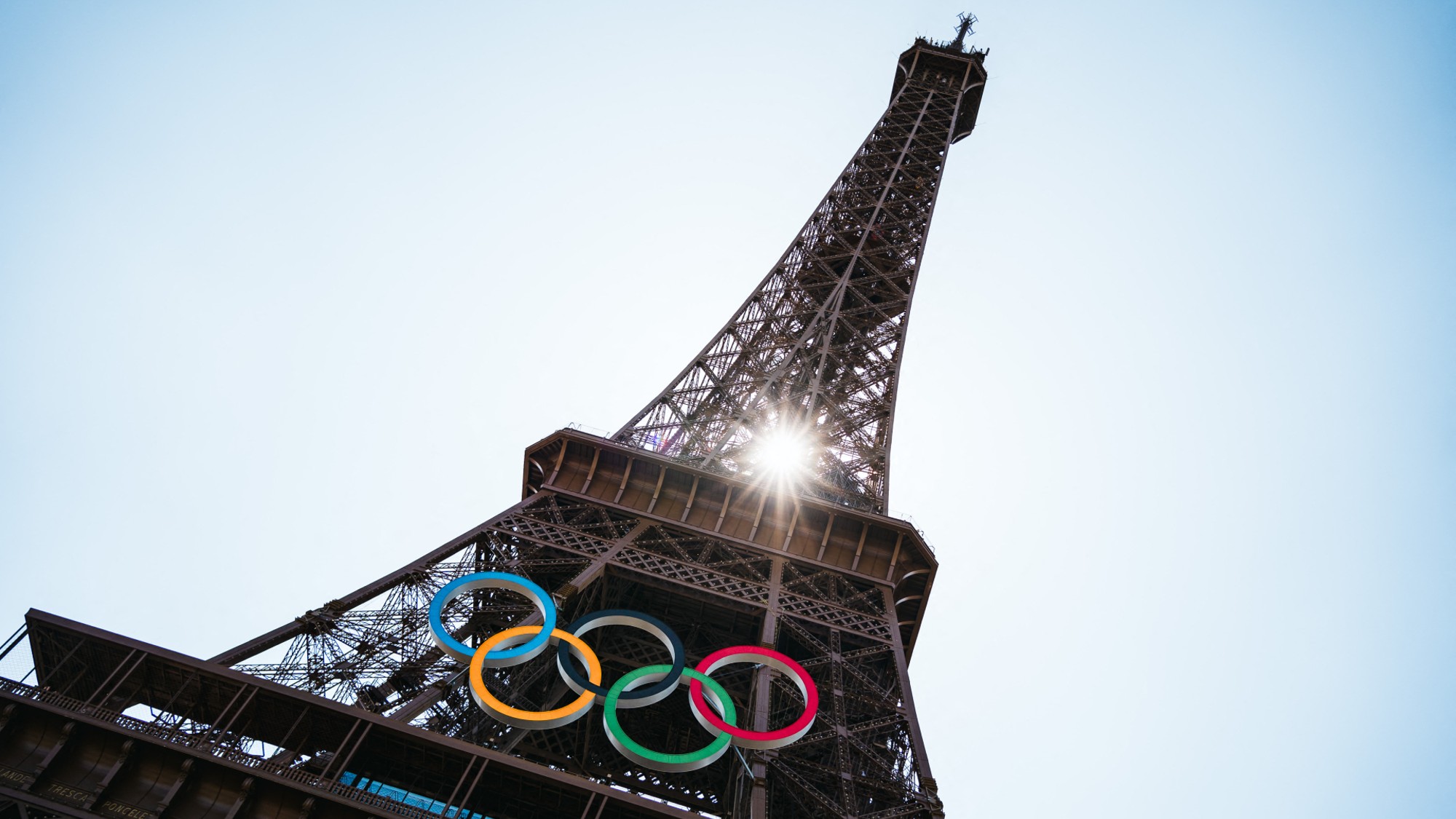The heated battle over air conditioning at the Paris Olympics
Athletes want AC in the Olympic Village but Paris officials are crying foul


A free daily email with the biggest news stories of the day – and the best features from TheWeek.com
You are now subscribed
Your newsletter sign-up was successful
With the 2024 Summer Olympics in Paris just weeks away, athletes will arrive at an Olympic Village that is missing a notable piece of infrastructure: air conditioning. As part of Paris' commitment to a greener Games, air conditioning has not been installed in the village, with French officials insisting that the buildings will stay cool on their own through a geothermal water system.
However, many athletes seem to be worried about the lack of AC, especially given the expected scorching temperatures throughout Europe — and the fact that the heat of densely populated Paris could pose a deadly risk to athletes. As a result, the United States and other countries are taking the matter into their own hands at the behest of Paris officials by bringing their own AC units.
Why are officials not installing AC?
It is part of the city's commitment to environmental friendliness at the upcoming Olympics, and a scaling-back of elements like air conditioning that require additional electricity. Officials have said that this summer's events will be the "greenest ever Games." Beyond this, it is "about creating a more pleasant, greener space for local people's daily lives here after the Games," said local architect Laure Mériaud, per The Guardian.
The Week
Escape your echo chamber. Get the facts behind the news, plus analysis from multiple perspectives.

Sign up for The Week's Free Newsletters
From our morning news briefing to a weekly Good News Newsletter, get the best of The Week delivered directly to your inbox.
From our morning news briefing to a weekly Good News Newsletter, get the best of The Week delivered directly to your inbox.
Instead of installing air conditioning, Paris' Olympic Village will be cooled with a system of pipes that pump cold water underneath the buildings. The village was "designed to avoid the need for air conditioning, even in very, very high temperatures, in order to maintain comfortable temperatures," Paris Mayor Anne Hidalgo said to Reuters earlier this year. The International Olympic Committee (IOC) has claimed that this will keep the buildings at least 10 degrees cooler than the outside temperature. It shouldn't come as much of a surprise that alternative cooling measures are being implemented; the IOC "has become increasingly cognizant of the environmental impact of the Olympic Games" in recent years, said USA Today.
A lack of air conditioning is not all that unusual in France, or even Europe as a whole; less than 1 in 10 European households have AC installed, according to the International Energy Agency, with a 2016 study finding that there were 100 million AC units in the European Union compared to 375 million in the United States. But this normality has not made the athletes any less concerned.
How have the athletes reacted?
In response, athletes are supplying the AC themselves. Several national teams have confirmed that their athletes will bring portable air conditioning units to Paris, perhaps most notably the Americans. The U.S. athletes "will have air conditioning in the rooms in the village," U.S. Olympic and Paralympic CEO Sarah Hirshland said during a press briefing. The United States has "great respect for the work that's been done by the Paris Organizing Committee in particular, and their focus on sustainability," but "this is a period of time in which consistency and predictability is critical for Team USA's performance, and in our conversations with athletes, [AC] was a very high priority and something that the athletes felt was a critical component in their performance capability."
Team USA is just the latest in a recent line of national teams to be bringing their own air conditioners to Paris. The Washington Post reported that a slew of other countries will be following suit, including Australia, Canada, Denmark, Greece, Italy and the United Kingdom. "We will bring them," Alexandra Palli, the president of the Greek Olympic committee for environmental sustainability, said to the Post. The athletes "need support," she added, "because what they do is very difficult anyway."
A free daily email with the biggest news stories of the day – and the best features from TheWeek.com
However, this raises yet another question: fairness. Portable air conditioners are not cheap, and their usage "represents a cost that some delegations from poorer countries might not be able to afford, meaning athletes in the same Olympic Village might be sleeping at different temperatures," said the Post.
But despite all of the controversy, French officials insist the village's cooling system is a better solution than air conditioning. "AC without passive design strategies is nonsense," Nicolas Ziesel, a founding partner of KOZ, one of the architecture firms that built the village, said to Fast Company. "You just make things worse by having the units at full speed, bringing hot air outside, and raising the electricity bill and indirect CO2 emissions."
Justin Klawans has worked as a staff writer at The Week since 2022. He began his career covering local news before joining Newsweek as a breaking news reporter, where he wrote about politics, national and global affairs, business, crime, sports, film, television and other news. Justin has also freelanced for outlets including Collider and United Press International.
